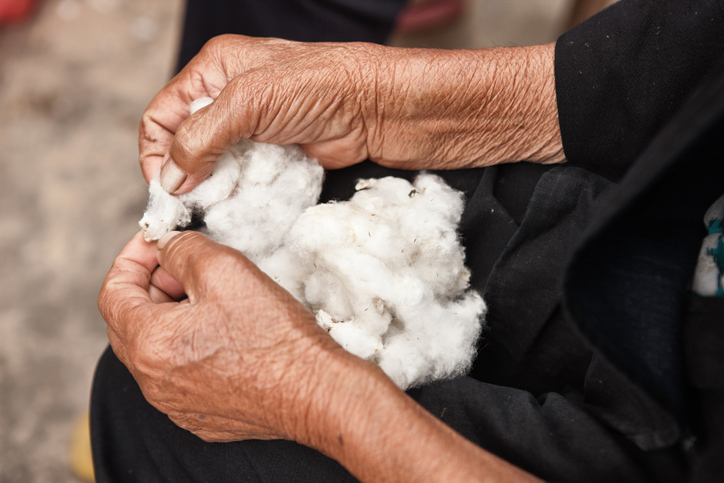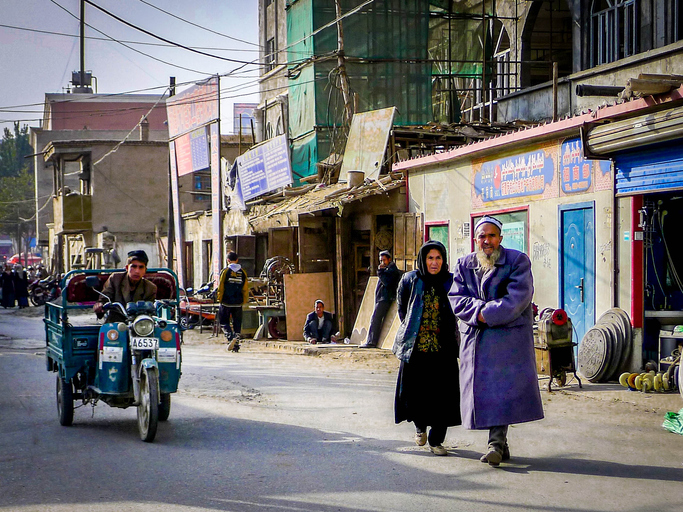06/10/2020
Made in Xinjiang: US sanctions trigger scrutiny of supply chains in western China
Key takeaways
- US OFAC has imposed sanctions on Xinjiang Production and Construction Corps (“XPCC”), a Chinese paramilitary and economic organisation, due to alleged human rights abuses in Xinjiang province
- Numerous internationally-recognised clothing and technology brands use suppliers connected to XPCC and Xinjiang, which produces 85 percent of China’s cotton
- Western companies face increased scrutiny of their supply chains and will need to conduct effective due diligence in China and the wider region
- Effective auditing and due diligence processes are severely constrained in Xinjiang
Introduction
On 31st July 2020, against a backdrop of rising political and economic tensions between the USA and China, the US Department of the Treasury’s Office of Foreign Assets Control (“OFAC”) imposed economic sanctions on the Xinjiang Production and Construction Corps (“XPCC”), a Chinese paramilitary and economic organization in Xinjiang Uyghur Autonomous Region (“XUAR”), also known as Xinjiang. The sanctions also target Sun Jinlong, a former Political Commissar of the XPCC, and Peng Jiarui, the Deputy Party Secretary and Commander of the XPCC.
The imposition of sanctions follows allegations of serious human rights abuses against ethnic minorities in Xinjiang. The US has highlighted reported abuses in what Chinese authorities call re-education camps for local Uyghurs and other ethnic minority groups in Xinjiang, but which the US claims are forced labour camps, holding up to as many as a million people.
Separately, on 14 September 2020, US Customs and Border Protection (“CBP”) issued five Withhold Release Orders (“WRO”) on items originating from Xinjiang more broadly, including hair products, clothing and technology products. Some of these goods are manufactured by subsidiaries of XPCC.
Xinjiang Production and Construction Corps – What is it?
The XPCC is a unique paramilitary and economic organisation in Xinjiang. It was founded in 1954 under orders from the Chinese communist leader Mao Zedong and it currently has administrative authority over several cities, settlements and farms. It also has its own administrative structure which performs a range of governmental functions.
The XPCC consists of 14 divisions which, in turn, are subdivided into around 180 so-called “regiment-level” entities. Since its inception, the XPCC has established several subsidiary companies, which manufacture a variety of products. It currently has stakes in more than 800,000 companies and either employs or indirectly supports as many as 3.1 million people. XPCC itself reports to the Chinese Communist Party.
Political and economic analysts have called XPCC a “secretive organisation”, as access to and knowledge about its operations are scarce. This is not, however, the first time that XPCC has been accused of human rights violations. In 2018 the US-based campaign group, Human Rights Watch, documented an escalation in repressive policies against the Turkic Muslim people from Xinjiang after Chen Quanguo, a CPP regional secretary, was reassigned from the Tibet Autonomous Region to assume leadership of Xinjiang in 2016. Chen Quanguo has faced repeated accusations from media outlets and NGOs of building a system of repression, surveillance and forced assimilation in Tibet.
Implications of US sanctions on XPCC and global supply chains
The US sanctions imposed on XPCC and its subsidiaries, in which XPCC directly or indirectly owns a stake greater than 50 percent, are highly significant both in their nature and their ramifications for several multinational companies and their global supply chains. Given XPCC’s unique structure and because it acts as a governmental administrative authority as much as an economic entity, sanctioning XPCC can be viewed as comparable to sanctioning a Chinese province.
Xinjiang accounts for approximately 85 per cent of China’s cotton production. As China is one of the world’s top three cotton producers, alongside India and the US, who, between them, account for over half the world’s cotton production, this is equivalent to 13 per cent of global production. Moreover, China supplies more than 30 percent of the apparel entering the US market. Numerous internationally recognised brands use suppliers who are from or connected to XPCC, so severing these ties is likely to significantly disrupt their supply chains. PVH Corp, which owns fashion brands Tommy Hilfiger and Calvin Klein, has stated it will end all business relationships with factories that use cotton grown in Xinjiang in the next 12 months. Earlier this year, Lacoste and Adidas agreed to cease all activity with suppliers and subcontractors connected with the forced labour camps in Xinjiang. The list of international brands that have some form of connection with XPCC or Xinjiang more broadly is, however, much longer.
In parallel with these sanctions, OFAC gave companies until 30 September to wind down their activities and cease trading with entities linked to XPCC, but, following pressure from several trade groups, this deadline has now been extended to 30 November 2020.
Due diligence and eliminating risk
Although the sanctions are likely to hit certain US clothing and apparel companies hard, there will probably be knock-on effects globally for the textile industry. Now that Washington has taken a firm stance on human rights and labour issues in Xinjiang, there will be pressure on the European Union and other countries to follow suit. At the very least, US measures would appear to give campaigners and shareholders a mandate to scrutinize supply chains that may have links to XPCC, or connected entities, and, therefore, wider human rights abuses in Xinjiang. International companies will be under renewed pressure to demonstrate that their products and the raw materials they are made from are not tainted by forced labour and wider abuses.
Companies around the world therefore face severe challenges to ensure that their products do not originate from entities controlled by XPCC, either directly or indirectly. For example, Western companies may purchase products that ostensibly come from a supplier in eastern China or other parts of Asia, such as Cambodia or Vietnam, but given Xinjiang accounts for most of China’s cotton production, it is highly likely that these items contain materials that can be traced back to XPCC and its affiliates.
In 2019, the Center for Strategic and International Studies in Washington published a report that stated that there are certain businesses in eastern China that have invested in or supported factories or industrial parks in Xinjiang which are complicit in abuses of human rights. For example, some of these factories have reportedly been accused of employing Uyghur workers, who have been transferred directly from Xinjiang’s camps. For international companies, this makes a difficult task even more complex.
Western firms are therefore faced with a level of opacity in Xinjiang that makes it challenging to evaluate the extent to which an organisation is linked to XPCC. Effective on-the-ground auditing of factories or suppliers in Xinjiang is stymied by intensive government surveillance. The Chinese government has prevented some auditors from entering the region and, even if they could, very few workers would be willing to risk speaking to them.
Furthermore, while international human rights standards such as the United Nations Guiding Principles on Human Rights prescribe that companies engage with and seek to remedy any labour issues they identify in their supply chain, the inaccessibility of Xinjiang’s production facilities make it almost impossible to comply with this approach.
Given the treatment of the Uyghurs , it is imperative that international companies conduct comprehensive and detailed due diligence of all aspects of their supply chains, to ensure they have full visibility of the origins of their purchases and that constituent materials are not sourced from companies with links to XPCC or others in Xinjiang. This will be the only way companies can uphold international standards of human rights and avoid any complicity in the forced labour or wider abuses that are being perpetrated in Xinjiang.
By Denisa Andreica
Senior Analyst: APAC Practice, Aperio Intelligence
denisa.andreica@aperio-intelligence.com
